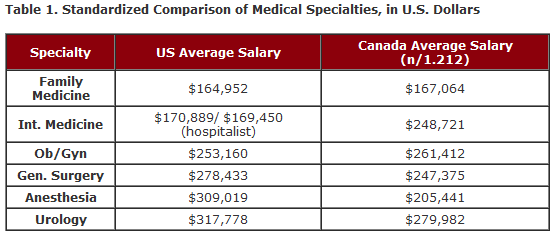- Joined
- Dec 19, 2006
- Messages
- 40
- Reaction score
- 0
Anesthesiology will exist as a medical specialy. I urge strong consideration for a fellowship.
Incomes will drop over time. The field has peaked in terms of money. There are still pockets of great practices with low Medicare/Medicaid and self pay. Those practices will endure the longest. However, Obamacare will eventually even get them. Resistance is futile. Obama wants cheap, cost effective care (which means cheap as possible).
CRNAs will not take over the fied completely. They may displace Physicans from the stool sitting role in some areas.
Yes, income could decrease to $200 for academia and $250-275 for private practice circa 2022. The problem with that income is inflation will have eaten away at the real value of that money by then. This translates into much lower income in today's dollars.
man those don't seem like bad numbers at all.....granted we don't know what will happen with inflation, but I think 250-275 is what ppl in California and other popular locations are making TODAY. I think it's important for med students to enter the field expecting those kinds of numbers, and if things don't turn out to be as bad as ppl in sdn keep saying, well then anything more is gravy.



